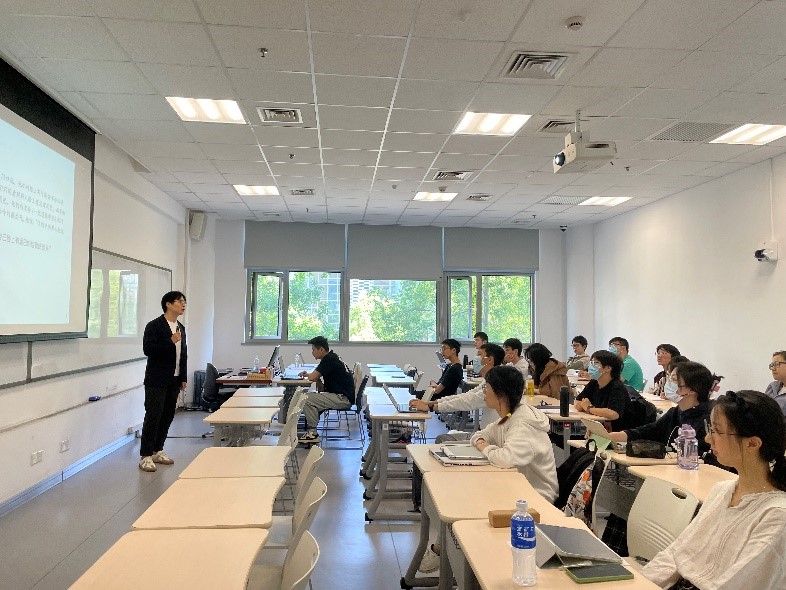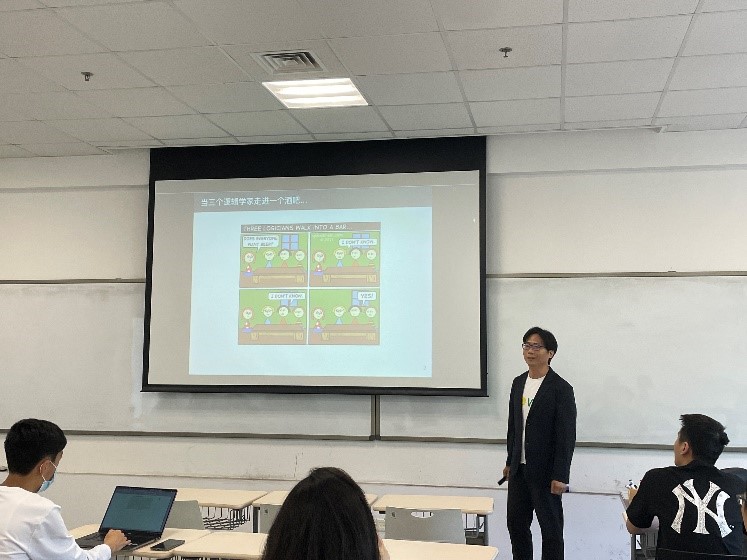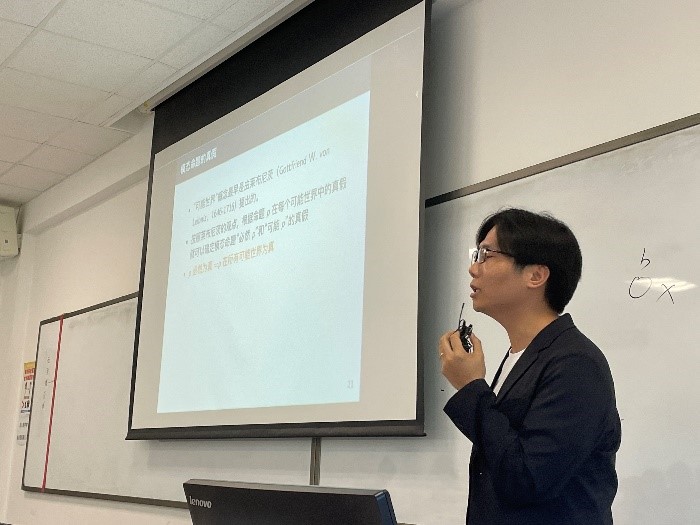On May 23, 2023, the Institute of Humanities held a lecture titled 知之为知之,不知为不知: A brief introduction to epistemic logic in Room 1-205 of the College of Material Science. The event was initiated and hosted by teaching Assistant Professor Wang Qiang, and invited Assistant Professor Wei Yu from East China Normal University, who introduced the historical development of epistemic logic.

At the beginning of the lecture, Doctor Wei engaged the students with several games that guided them to think about the reasoning patterns of knowledge. Then Doctor Wei introduced the concept of modal logic to the students. The history of modal logic can be traced back to Aristotle, who discussed syllogisms with modal operators in his work Organon.
The modern founder of modal logic is C.I. Lewis. In order to address the problem of material implication paradoxes in propositional logic, he proposed strict implication. Although this new approach did not completely resolve all paradoxes, it led to an important new field: modal logic. Doctor Wei explained the syntax and semantics of modal logic to the students. Narrowly speaking, modal terms include possible and necessary, while broadly speaking, they can also include ought, I know, and so on.

Next, we dived into the main theme of the lecture—epistemic logic. Epistemic logic is a modal logic that deals with reasoning about knowledge (and belief). We represent Agent i knows that φ as the formula Kiφ. The semantics of modal logic are based on possible world theory. Ki φ is true in a pointed model if and only if φ is true in all the accessible worlds from the current world. Epistemic logic has many interesting axioms. For example, Hintikka argued that the accessibility relation describing knowledge should be reflexive and transitive, corresponding to the T axiom and the 4 axiom. The T axiom is also known as the factivity axiom, which reflects the idea that knowledge implies truth. The 4 axiom, also known as positive introspection axiom, states that if an agent knows, it implies that the agent knows that he knows. In later developments and applications, scholars often assume the addition of a negative introspection axiom (5 axiom) to characterize epistemic logic. The 4 and 5 axioms precisely express the theme of our lecture—知之为知之,不知为不知.

At the end of the lecture, Doctor Wei applied epistemic logic as a tool to analyze the initial games, fully demonstrating how logicians employ logical tools to deal with concrete problems. Following that, Doctor Wei and the students engaged in a lively discussion on specific details of the lecture and the relationship between logic and philosophy.
